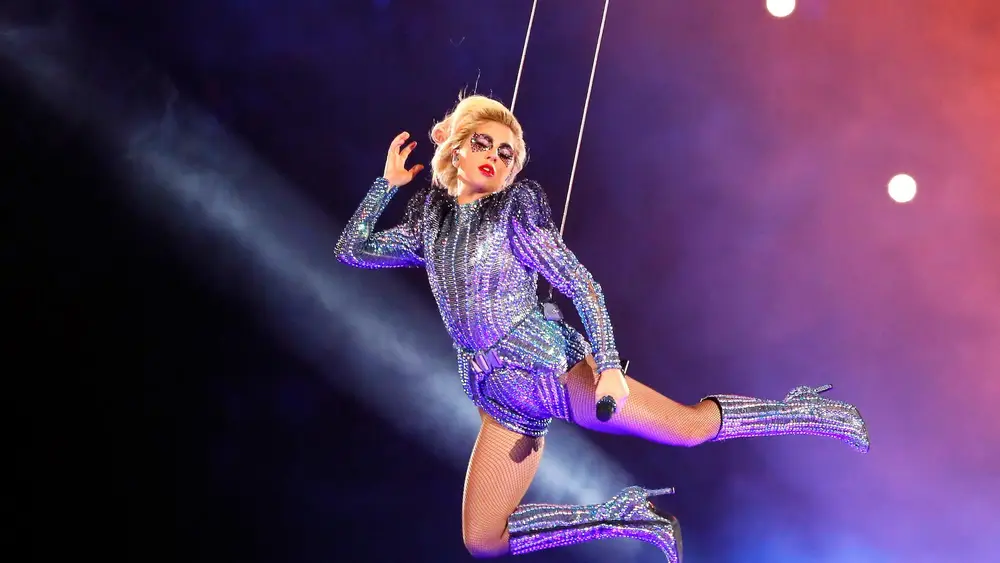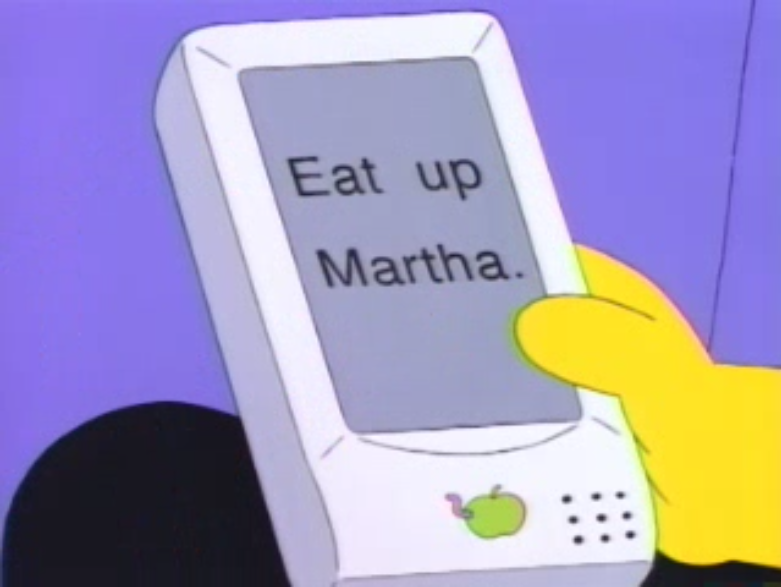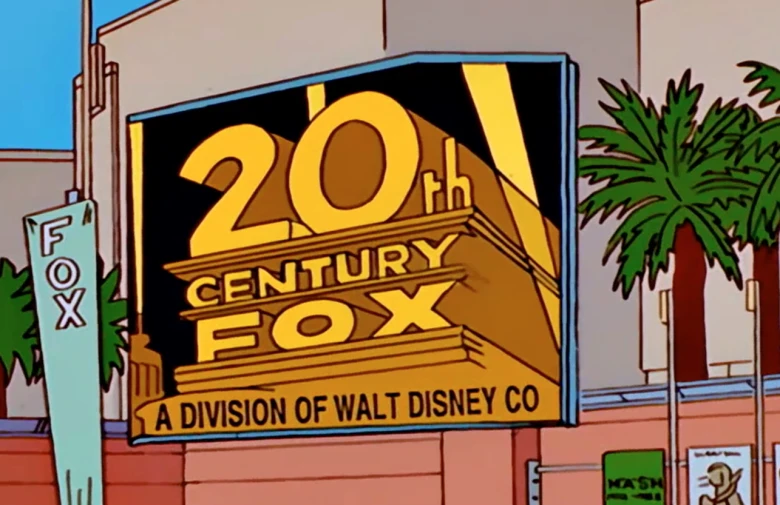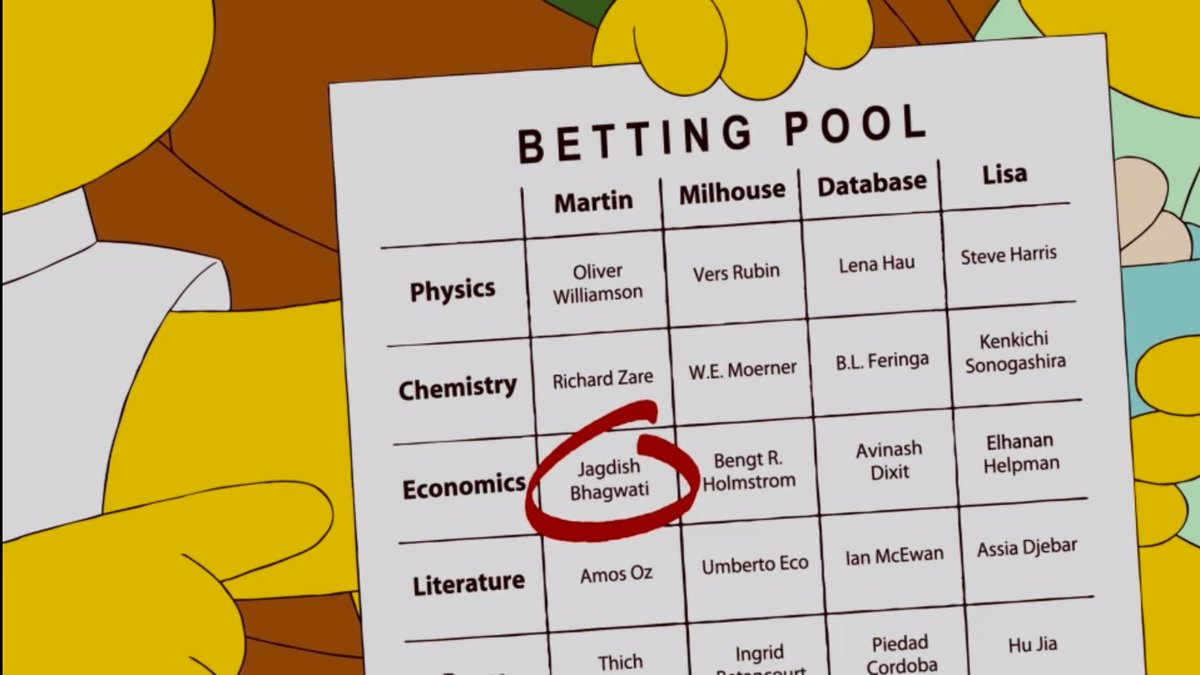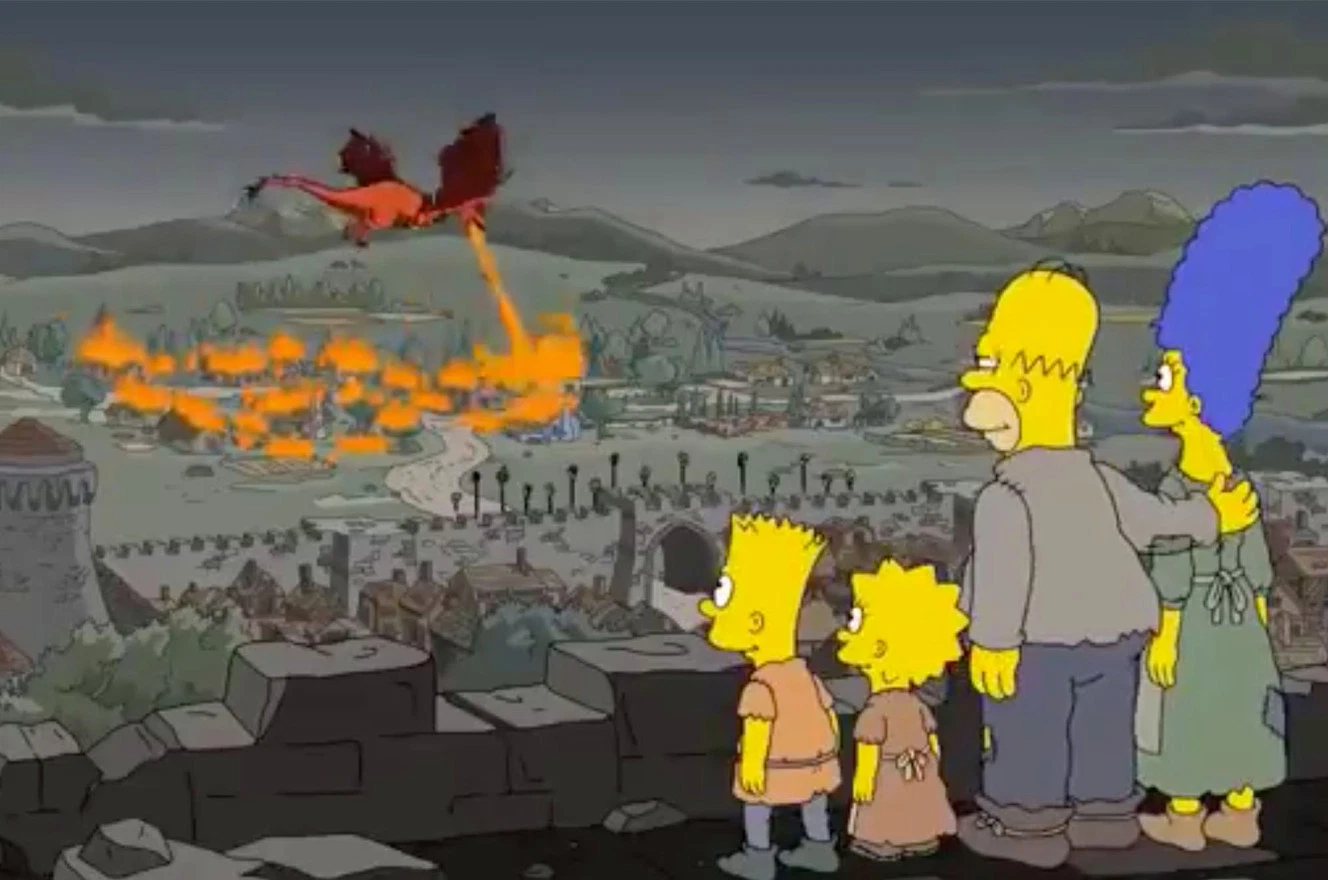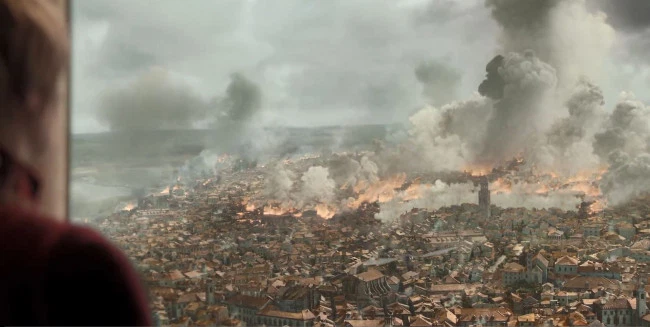Marty McFly. Emmett Brown. Phillip J. Fry. The T-800 and T-1000. Bill S. Preston, Esq. Ted “Theodore” Logan. The list of famous time travelers can continue until you stumble upon an entry that might surprise you: The writers of The Simpsons. There is plenty of evidence of this across the internet, some are elaborate conspiracy theories and some will say that each example is a crazy coincidence. Either way, Disney+ has embraced this and has created a watchlist on their main page: “The Simpsons Predicts The Future.”
Bart to the Future (Season 11, Episode 17): Originally airing in March of 2000, this episode finds the Simpson clan at a native american casino where Bart is shown a vision of his future, with his sister Lisa becoming the first female president. it’s this episode that famously mentions that real estate mogul and millionaire Donald Trump became president just before Lisa and caused a budget crisis that she inherits.
Lisa’s Sax (Season 9, Episode 4): After Bart inadvertently destroys Lisa’s saxophone, she says she can’t remember a time when she didn’t have a saxophone, prompting Homer to tell her (and the audience) the origin story of the sax. Originally aired in 1997, there is a short scene where Marge is asking Bart if he wants to hear a bedtime story, pulling out a book titled “Curious George and the Ebola Virus.” Marge then asks if Bart would like 'to color something', to which he replies that he already did, pointing to a drawing of a dead Bart surrounded by blood and bodies with the sun and clouds crying. Sporadic ebola cases occurred throughout the world in the late 90s, with significant outbreaks in the early 2000s with some occurring as recently as last year.
Lisa Goes Gaga (Season 23, Episode 22): Originally broadcast in 2012, a psychic force tells Lady Gaga as she passes on a train through Springfield that Lisa needs her help immediately. After much soul searching and yelling at Lady Gaga for trying to help, Lisa realizes that her outburst helped her because she is finally expressing her anger instead of bottling it up inside her, in effect making Lady Gaga's mission successful. In the episode, Lady Gaga performs at the Super Bowl foreshadowing her actual performance in 2017. In the episode she descends into the Super Bowl via harness attached to a helicopter, which is very similar to how she actually performed, “jumping” off of the roof of the stadium and being lowered in via harness.
You Don’t Have to Live Like a Referee (Season 25, Episode 16): Through a series of events, including an essay by Lisa that goes viral about her hero, Homer ends up as a referee at the World Cup. Homer referees honestly, but soon gangsters attempt to bribe him. Wanting to retain Lisa's respect (and the fact that he is utterly disinterested in the game), Homer refuses. He continues to be an honest referee despite the players trying to bribe him when he gives them red cards. Homer admits to Bart that it is hard to turn down the bribes, but knowing that Lisa chose him as her hero, he has no other choice. Bart decides to tell him the truth about Lisa’s speech; that he never really was her first choice as a hero. Homer is so devastated he decides to accept the bribes. During the World Cup Final (Germany vs. Brazil) Homer has been bribed to fix the game so that Brazil wins. Lisa tells him that his integrity as a referee has impressed her so much he is her real hero now. A Brazilian player known as "El Divo" goes down in the game and appears to be hurt. Homer, listening to Lisa, thinks he is guilty of diving. Homer calls "no penalty,” denying Brazil the penalty kick and the Germans win the World Cup. The episode originally aired in 2014, with a scandal coming forward indicting FIFA for bribery and corruption in 2015.
Lisa on Ice (Season 6, Episode 8): The Newton originated the term "personal digital assistant" – it was the first to feature handwriting recognition. Apple started developing the platform in 1987 and shipped the first devices in 1993. Production officially ended on February 27, 1998. It was in 1994 that Springfield Elementary School bully Kearney told Dolph to take a memo on his Newton, “Beat Up Martin,” which after the handwriting was translated turned to “Eat Up Martha.” Even in 2019, Apple still hasn’t quite got the autocorrect right on many of its devices.
The City of New York vs. Homer Simpson (Season 9, Episode 1): Again, after a series of events, Homer receives a letter from the New York City government, which informs him that his car has been found parked in the World Trade Center plaza and will be destroyed if not picked up in 72 hours. Homer reveals to the family that he had once been to New York before when he was 17 years old, and had a horrible experience. Marge and the children persuade Homer to go retrieve the car, and he reluctantly agrees. It’s when Bart holds up an advertisement for New York that hits a nerve that it wouldn’t have when it aired in 1997, showing a giant $9 against the silhouette of the Twin Towers that almost appear as an “11.” That, combined with the pivotal moments of the episode taking place at the World Trade Center (including a gag where Homer has to go up and down the towers rapidly to find a working restroom) helped get the episode banned from re-broadcast after the events of September 11th, 2001 with some even noting the season (9) and episode (1) being an eerie coincidence.
Boy Meets Curl (Season 21, Episode 13): In this episode, Homer and Marge Simpson form a mixed curling team with Agnes and Seymour Skinner, which is chosen to play in the 2010 Winter Olympics in Vancouver. Marge proves to be the team's standout despite curling with a bum shoulder, and their team defeats Sweden. Eight years later, that's exactly what happened when the U.S. men's team, led by skip John Shuster, took home the gold in curling. Sweden earned the silver medal.
Lisa’s Wedding (Season 6, Episode 19): Originally airing in 1995, the episode focuses on Lisa visiting a carnival fortune teller and learning about her future love. Set 15 years into the future, in the year 2010, the now 23-year-old Lisa meets a fellow university student named Hugh Parkfield from London. In the episode, Lisa converses with her family via video chat screens, and Hugh uses his watch to make phone calls. More notably than those examples, During Lisa's trip to London, we see a skyscraper behind Tower Bridge that looks eerily similar to The Shard, and it's even in the right location. Construction on that building began in 2009.
Wizard of Evergreen Terrace (Season 10, Episode 2): In the episode, Homer tries to emulate Thomas Edison and becomes an inventor — and apparently an inadvertent whiz mathematician. One physicist took it upon himself to document the show’s intricate relationship with mathematics with The Simpsons' and Their Mathematical Secrets, leading to a significant discovery: Homer Simpson proved the Higgs boson mass theory in 1998, way before scientists did. The physicist/author, Dr. Simon Singh, said he saw the solution for Higgs Boson, aka "God particle" mass, on a blackboard in this 1998 episode. The Higgs boson is an elementary particle that helps explain why other particles in the universe have mass. The theory hypothesized that all subatomic particles interact within an energy field, which in turn gives them mass. It was first predicted in 1964 by Professor Peter Higgs and five other physicists, but it wasn't until 2013 that scientists discovered proof of the Higgs boson in a $13 billion experiment.
When You Dish Upon a Star (Season 10, Episode 5): When the family spend the day at Lake Springfield, Homer meets Alec Baldwin and Kim Basinger, who are hiding from the media in their secluded summer home. Homer starts to work for them, developing a good friendship, but he soon reveals their secrets to the public, damaging his new friendship with them. This 1998 episode features a very quick sight gag that came to fruition over 20 years later, the 20th Century Fox logo with “a division of the Walt Disney Company” underneath.
Treehouse of Horror XIX (Season 20, Episode 4): In the opening scene, Homer tries to vote for Democratic candidate Barack Obama in the 2008 United States presidential election. However, the voting machine is rigged to register his vote for Republican candidate John McCain. After six attempts to vote (including actually voting for McCain once in the hopes that it would register for Obama), Homer heads out to report the mishap, but the machine sucks him in and kills him to hide the truth, then shoots his body out of the voting booth. The same occurred in reality in the 2012 election where a voter tried to vote for Barack Obama with the vote being registered to Mitt Romney.
Elementary School Musical (Season 22, Episode 1): In this episode, Krusty the Clown invites Homer to the Nobel Peace Prize Ceremony in Oslo, Norway. Later turning out to be a hoax, Krusty is sued by the International Court of Justice for his many instances of public indecency. Turns out that some of the Springfield Elementary students had a betting pool for who would win the nobel prize, and even though Martin Prince had the winner in the episode, it was Milhouse’s bet in the pool, Bengt R. Holmstrom, that would end up being the winner in reality.
The Serfsons (Season 29, Episode 1): This entire episode is already a parody of the series, Game of Thrones, but in it there is a twist that accurately predicted something that at that point had yet to happen on the series. Spoiler alert: A dragon swoops over and burns down most of Springfield. In the actual Game of Thrones series, in one of the last few episodes, we see Daenerys herself become the mad queen and have her dragons burn down King’s Landing after Cersei surrenders. This episode of The Simpsons aired two full years before the Game of Thrones plot twist.
There are some events that The Simpsons predicted that are not included in the official Disney+ watchlist, but can still be viewed on the streaming service.
$pringfield (Or, How I Learned to Stop Worrying and Love Legalised Gambling) (Season 5, Episode 10): The Simpsons parodied entertainers Siegfried & Roy in 1993, and during the episode, the magicians are viciously mauled by a trained white tiger while performing in a casino.
In 2003, Roy Horn of Siegfried and Roy was attacked during a live performance by Montecore, one of their white tigers. He lived but sustained severe injuries in the attack.
Bart Carney (Season 9, Episode 12) – When the Simpson family was visiting Colonel Tex's Traveling Carnival, Bart wanted to go to the Yard Work Simulator where Marge reminds him that she has asked him to do yard work at home which he didn't want to do. This simulator, which debuted in the 1998 episode, can be argued as very similar to the concept of FarmVille, a farming simulation game which would debut over a decade later.
Two Cars In Every Garage and Three Eyes on Every Fish (Season 2, Episode 4): The episode, originally aired in 1990, finds Bart fishing downstream from the Springfield Nuclear Power Plant when he catches a three-eyed fish he names Blinky. More than a decade later, a three-eyed fish was discovered in a reservoir in Argentina. Strangely enough, the reservoir itself was fed by water from a nuclear power plant.
The Simpsons Movie (2007) – When Marge discussed her plan to out government secrets, we were taken to the headquarters of the National Security Agency. Inside, there is a room full of monitors, with a whole staff listening to phone calls in the hopes of catching America's most wanted. It was almost as if the real NSA was listening in on the film, as in 2013 Edward Snowden revealed to the public numerous secret surveillance programs the agency was operating, very similar to the ones depicted in the film.



